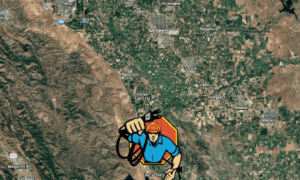Denver, known for its vibrant economy and diverse industries, places a high priority on workplace safety. Ensuring that businesses comply with the Occupational Safety and Health Administration (OSHA) standards is critical for protecting workers and maintaining a productive work environment. This article delves into the intricacies of OSHA compliance in Denver, offering valuable insights for both employers and employees.
The Role of OSHA
OSHA, established under the Occupational Safety and Health Act of 1970, is a federal agency responsible for enforcing workplace safety and health regulations. OSHA’s mission is to ensure safe and healthful working conditions by setting and enforcing standards and by providing training, outreach, education, and assistance.
OSHA Standards
OSHA standards cover a wide range of workplace hazards, from machinery and equipment safety to chemical exposure and ergonomic practices. These standards are categorized into four main groups:
- General Industry (29 CFR 1910)
- Construction (29 CFR 1926)
- Maritime (29 CFR 1915, 1917, 1918)
- Agriculture (29 CFR 1928)
Each category addresses specific risks and establishes requirements to mitigate them. For example, construction standards include regulations on fall protection, scaffolding, and trenching, while general industry standards cover machine guarding, electrical safety, and hazardous materials.
Importance of OSHA Compliance in Denver
Denver’s thriving industries, particularly construction, manufacturing, and healthcare, face unique safety challenges. Compliance with OSHA standards is not only a legal obligation but also a moral and financial imperative. Key benefits of OSHA compliance include:
- Reduced Workplace Injuries and Illnesses: Adhering to OSHA standards helps prevent common workplace accidents, such as falls, cuts, and exposure to harmful substances.
- Enhanced Employee Morale and Productivity: A safe work environment fosters employee trust and satisfaction, leading to increased productivity and reduced turnover.
- Avoidance of Penalties and Fines: Non-compliance with OSHA regulations can result in significant fines and legal consequences. For instance, OSHA penalties for serious violations can reach up to $14,502 per violation as of 2023.
Key OSHA Compliance Requirements
To ensure compliance with OSHA standards, Denver businesses must implement several critical practices:
- Hazard Identification and Assessment: Regularly inspect the workplace to identify potential hazards. Use tools like Job Hazard Analysis (JHA) to systematically evaluate tasks and processes.
- Training and Education: Provide employees with comprehensive safety training tailored to their specific job roles. OSHA offers various training resources, including the OSHA Outreach Training Program, which covers general industry and construction safety.
- Recordkeeping and Reporting: Maintain accurate records of work-related injuries and illnesses. Employers must record incidents on OSHA Form 300 and post OSHA Form 300A annually. Severe injuries, such as fatalities or hospitalizations, must be reported to OSHA within specified time frames.
- Emergency Action Plans: Develop and implement emergency action plans (EAPs) that outline procedures for responding to workplace emergencies, such as fires, chemical spills, and natural disasters. Ensure all employees are familiar with these plans through regular drills and training.
- Personal Protective Equipment (PPE): Provide appropriate PPE to employees based on the hazards present in the workplace. This may include items such as helmets, gloves, goggles, and respirators.
- Safety and Health Programs: Establish comprehensive safety and health programs that include policies, procedures, and responsibilities for maintaining a safe work environment. Encourage employee participation and feedback to continually improve these programs.
OSHA Resources and Assistance
OSHA offers numerous resources to help Denver businesses achieve compliance and maintain safe workplaces. Key resources include:
- OSHA Website: The official OSHA website (www.osha.gov) provides access to standards, regulations, training materials, and compliance assistance tools.
- On-Site Consultation Program: Small and medium-sized businesses can take advantage of OSHA’s free On-Site Consultation Program, which offers confidential advice on identifying and correcting workplace hazards without fear of penalties.
- Training and Education: OSHA provides training through its Outreach Training Program, which includes 10-hour and 30-hour courses focused on general industry and construction safety. Additionally, the OSHA Training Institute (OTI) Education Centers offer advanced safety and health training.
Local Support and Resources in Denver
In addition to federal OSHA resources, Denver businesses can leverage local organizations and initiatives to enhance workplace safety:
- Colorado Department of Labor and Employment (CDLE): The CDLE provides various safety and health resources, including consultation services, training programs, and regulatory guidance.
- Rocky Mountain Education Center (RMEC): Located at Red Rocks Community College, RMEC offers OSHA-authorized training and education programs tailored to the needs of Denver’s workforce.
- Denver Workforce Services: This city agency offers support and resources for businesses, including workforce training and development programs.
Challenges and Solutions in OSHA Compliance
Achieving and maintaining OSHA compliance can be challenging for Denver businesses, especially small enterprises with limited resources. Common challenges include:
- Keeping Up with Changing Regulations: OSHA standards and regulations evolve over time, requiring businesses to stay informed and adapt accordingly.
- Resource Constraints: Small businesses may struggle with the financial and human resources needed to implement comprehensive safety programs.
- Employee Engagement: Ensuring all employees understand and follow safety procedures can be difficult, particularly in high-turnover industries.
To overcome these challenges, businesses can:
- Stay Informed: Subscribe to OSHA newsletters and alerts to receive updates on regulatory changes. Participate in local industry associations and safety networks to share best practices.
- Leverage Free Resources: Utilize free OSHA resources, such as the On-Site Consultation Program and online training materials, to enhance safety programs without incurring significant costs.
- Foster a Safety Culture: Promote a workplace culture that prioritizes safety through regular communication, training, and employee involvement. Recognize and reward employees who contribute to a safe work environment.
Workplace safety is a crucial aspect of business operations in Denver. Understanding and complying with OSHA standards is essential for protecting employees, enhancing productivity, and avoiding legal and financial penalties. It’s important to consult with a Denver employment law attorney to ensure that you are updated with the best OSHA practices. By leveraging available resources and fostering a culture of safety, Denver businesses can create safer, healthier work environments that benefit everyone involved.
Read More From Techbullion And Businesnewswire.com



































